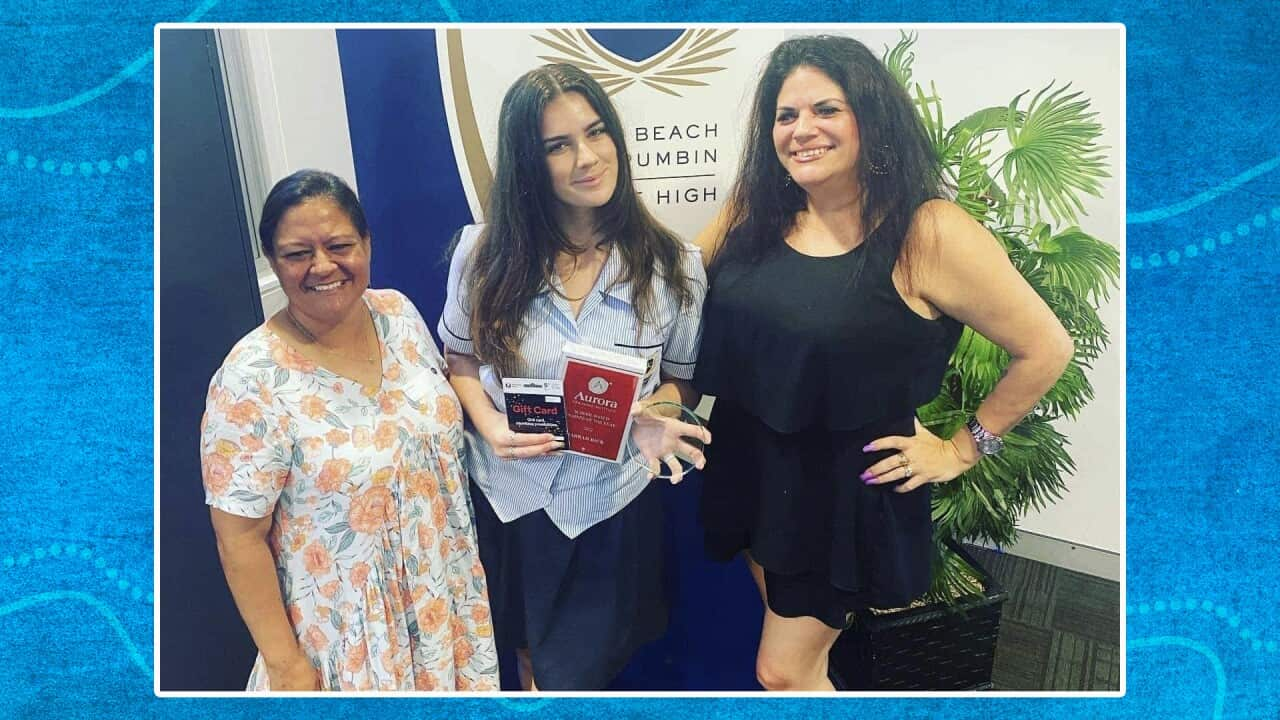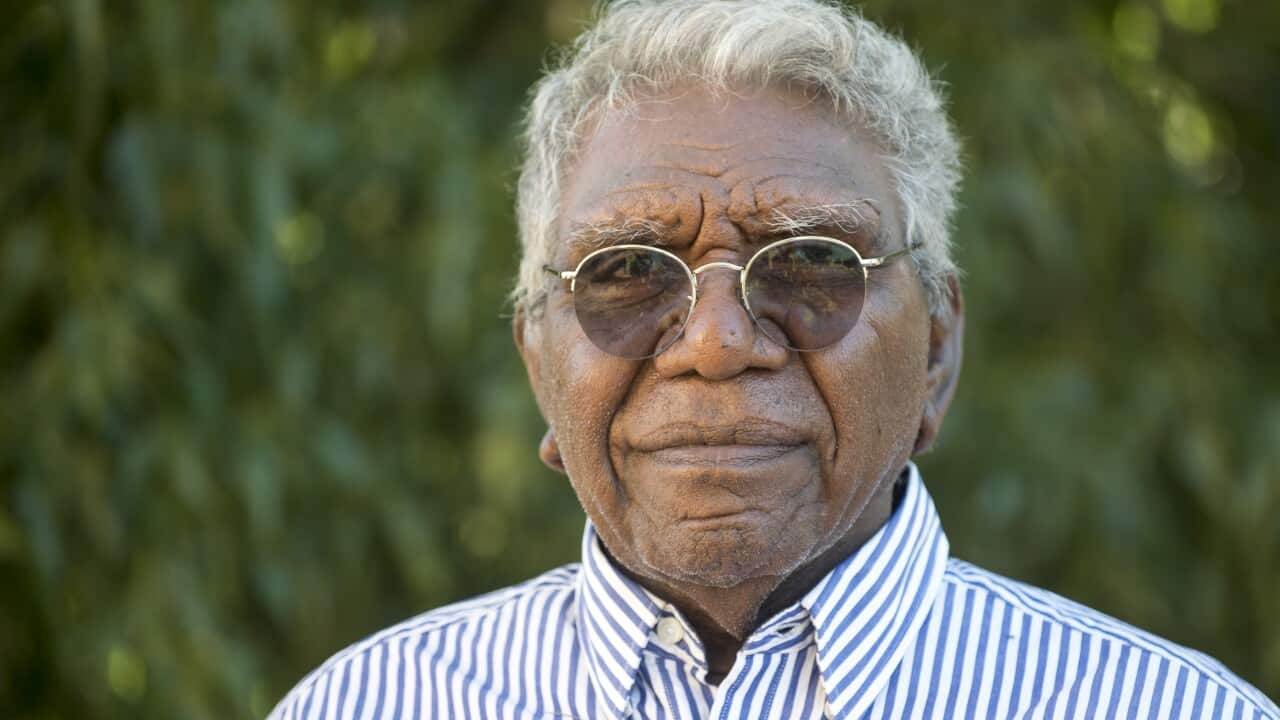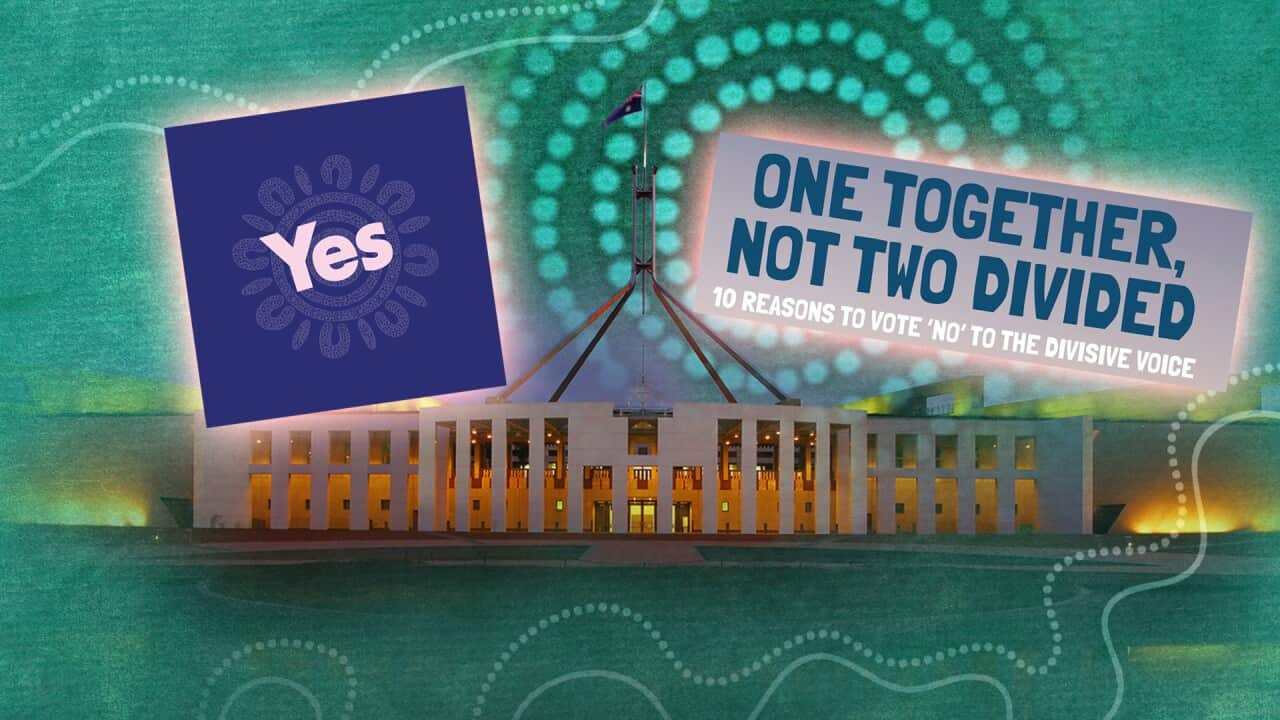Sport and politics are colliding ahead of the Indigenous Voice referendum as politicians bicker about who should take part in the national debate.
Opposition Indigenous Australians spokeswoman Jacinta Nampijinpa Price has criticised major sporting codes for supporting the 'Yes' campaign, saying sports and politics needed to be separated.
But First Peoples' Assembly of Victoria co-chair Marcus Stewart says sporting codes have a democratic right to participate in politics.
"Senator Price claims to be a voice for the people of Australia, yet her comments dismissing the views of sporting codes are anti-democratic and frankly un-Australian," he told AAP.

Country Liberal Party senator Jacinta Price has said sporting institutions should stay out of the Voice debate. Source: AAP / MICK TSIKAS/AAPIMAGE
"This is just another attempt from the right to silence supporters of the Voice and cast doubt in the minds of voters," he said.
Senator Price made the comments in a radio appearance on Thursday, asserting that sporting codes need to stay out of politics.
"... especially when they aren't across the detail," the Warlpiri senator told 2GB radio.
"It's not for them to promote something in this capacity. To me, it's like a huge virtue-signalling exercise."

Country Liberal Party senator Jacinta Nampijinpa Price and 22 Indigenous community leaders at a press conference at Parliament House in Canberra. Source: AAP / Mick Tsikas/AAP Image
"What's that saying? The road to hell is paved with good intentions," she said.
"There's a lot of goodwill out there from Australians, but there's absolutely... no way in which this proposal can demonstrate with any clarity that it is going to improve the lives of our most marginalised."
The push to educate
The government is putting $1 million towards the Constitution Education Fund Australia and $475,000 into the Museum of Australian Democracy in a bid to educate the public about the referendum.
The two bodies will jointly deliver neutral, easy-to-understand information about the constitution and voting process. No Australian under the age of 42 has voted in a referendum.
It will include digital learning resources and will boost the reach and visibility of public institutions and libraries to help reach more people.
Indigenous Australians Minister Linda Burney said it was crucial Australians had the facts.
"Delivering this civics program will ensure all Australians can contribute respectfully and knowledgeably to the national conversation about the referendum before voting day," she said.
The Australian Electoral Commission is also working to quell misinformation during the referendum, with a record 17.5 million Australians set to vote.
The potential impact of foreign interference during the vote is going under the microscope at a parliamentary inquiry on Thursday.
As of March 31, more than 97 per cent of eligible Australians were registered to vote, with 75,000 added to the electoral roll in the first three months of the year.
The number is expected to grow in coming months.
The referendum to enshrine an Indigenous advisory body in the constitution is due between October and December.














